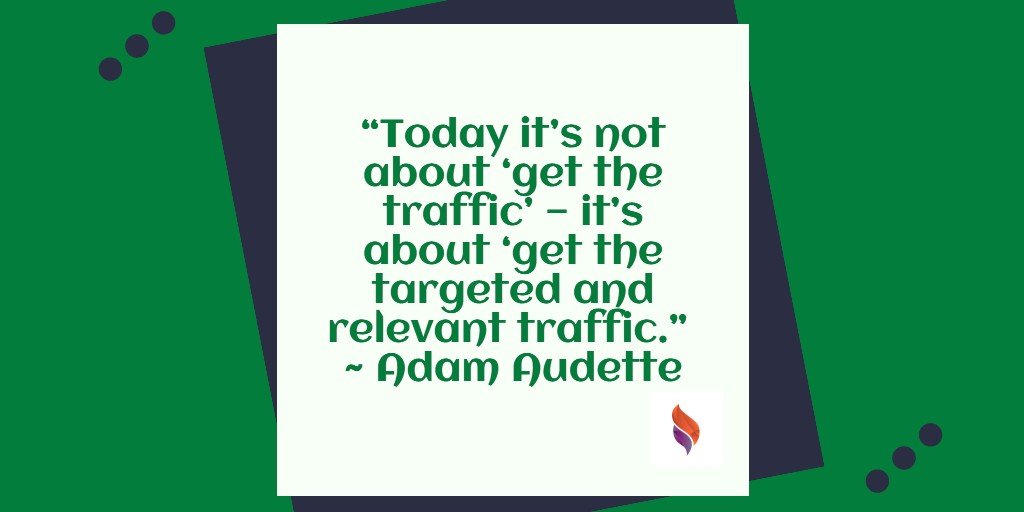See These 10 Tips for Better Small Business SEO
When it comes down to ranking your site’s page in the local rankings, it’s obvious that you need to do some basic SEO, search engine optimization, in order to compete. As search engines develop, the experience of the user has become the top priority. Focusing on user experience is the best way to climb the SEO rankings through high-quality content, improved site performance, and the use of valuable keywords. Fortunately for us, there are clear guidelines that will help you rank your pages better, and most of them are doable without being the head geek at Google.
Your SEO strategy must match the priorities of search engines. Your pages and site keywords must match the search intent of the user’s search query. Your content must be competitive and detailed. Multiple technical factors of your site also affect your search rankings. The most basic of these technical factors are faster loading time, simplified URLs, and optimizing your site for multiple platforms.
Have a Solid Keyword Strategy
Building a strong foundation of competitive keywords is the first step in rising to the top of search engine rankings. Know which target keyword you want to rank for on individual pages. Each page should focus on target keywords most relevant to the potential search term matching the page’s content. Keep in mind the use of long-tail keywords to help you get your foot in the door. Long-tail keywords are much easier to initially rank for thus increasing your site’s visibility while building a brand. Additionally, the use of long-tail keywords helps to ensure your page provides the best user experience by matching the user’s search intent.
High-quality content
Being sure that you give your readers meaty, awesome content that they can use is job #1. Without the content to back up your SEO efforts, search engines will not rank your content highly. Focus on your audience, the user. Google favors longer text, so shoot for at least 750-1250 words per page when writing a piece of content. Write with your keyword ideas in mind. Including your keywords in your content reinforces to search engines you are focusing your content on a specific topic. However, too much of even a good thing turns out badly. Keywords should be used sparingly, around 1-3% or your content should be your target keyword. Include media to support your content such as video content or images. Media is a useful tool to illustrate visual the purpose of your content.
Blog posts are a great way to build upon your content strategy. Blogs are an easy way to expand your SEO horizons and share your expertise with users. Blogs can be used to update customers to new industry practices, new products, or trending movements with an industry. Blogs allow you to create content that increases your site’s organic traffic. Knowledge is an invaluable resource and sometimes you got to share the wealth.
Structured Data
“We all know structured data is important for helping Google to better understand content and that it can help increase clicks, impressions, and conversions.” source: www.searchenginejournal.com
Ensure that each web page has optimized structured data, in particular title tags, meta description, along with only 1 H1 tag per page. Title tags allow the user to have an easy way to know the content of your page before even visiting your site. Meta descriptions are your first impressions and nothing is more important than first impressions Meta descriptions are your first opportunity to grab the user’s attention and stand out from the crowd. H1 titles are your headline. You want your H1 to present the goal of your content. Optimizing these areas helps search engines and users to better understand your site’s type of content.
User-Generated Content
User-generated content can greatly impact your SEO. Encourage your customers and users to leave positive reviews for you, especially on Google, as this will have a large effect on where you rank. Organic positive reviews are some of the strongest user-generated content a site can have. A well-maintained comment section can engage the user to provide feedback and share additional ideas. Users can even affect your search rankings through social media platforms. Social media is a vital part of any marketing strategy. User-generated content on your social media spreads your content to new potential site visitors thus diversifying organic traffic. Organic traffic from more mediums tells google that users are interested in what you have to say.
Mind your NAP data
NAP – Name, Address, and Phone numbers, is nothing to sleep on. Make certain that the information you present to the world is consistent across all your web platforms and social media profiles. Get all names, addresses, and phones, along with any other identifying information straight. Why go through all the effort to reach individuals without giving them a proper line to contact you? This information needs to be consistent so pay attention to shortened forms. If your location is on a street or drive, I’d recommend using the full form, so you don’t have to remember later which one you started with.

Make a Google My Business account
If you have a local business, this is a must. It gives additional information to someone searching for your business, including links to your website and directions. If you hope to do well in your local rankings, you’ll need to make sure this is optimized and complete. Localized search terms, such as near me or location-based searches, are autogenerated using this information by search engines. Having your business recognized locally leads to higher web and foot traffic.
Simplify your URLs
Crafting simple and descriptive URLs make it easy for people to understand the content of your page by merely looking at the URL. Consider using the primary page keyword in there too.
Optimize for mobile
Linking and SEO
Links, along with content remain one of the most important external signals for Google’s search rankings. That said, much has evolved, including how links are interpreted and treated by search engines. source: www.searchengineland.com
Strong link building is a great source of reinforcing SEO. Links are broken down into 2 groups, Internal links and external links. Internal links are links on your page that redirect users to other areas of your sites. Internal links are great in helping the user to navigate your site and expose your content. External Links are links from other sites bringing users to your page or links on your page leading to another site. External links are a great source of organic traffic and also show google you want to help the user even if they need to be directed to another site.
Take Advantage of Analytics
Google provides a variety of tools built to help maintain and evaluate the performance of your site. They are an excellent way to get intelligence on how your site is performing and where you can do better. . Google Analytics and Google Search Console are fundamental SEO Tools. What better tool to use when evaluating search traffic and search volume than the largest search engine’s tools? Follow this data to help fill in SEO gaps or help in showing potential content topics expand the reach of your site. Numbers never lie!
SEO is a neverending journey full of twists and turns. Just like technology, SEO is ever-evolving and nonstop. We at ThinkFlame strive to navigate this road and stay ahead of the curve. Follow or feel free to browse our catalogue of blogs to learn more about SEO and marketing from our experts.
Book Your Free Consultation Today

Founder & CEO of ThinkFlame, Shelly Patrick, trains individuals and companies to understand how their marketing affects their sales conversation and how to integrate marketing into their yearly plans for consistent growth.

